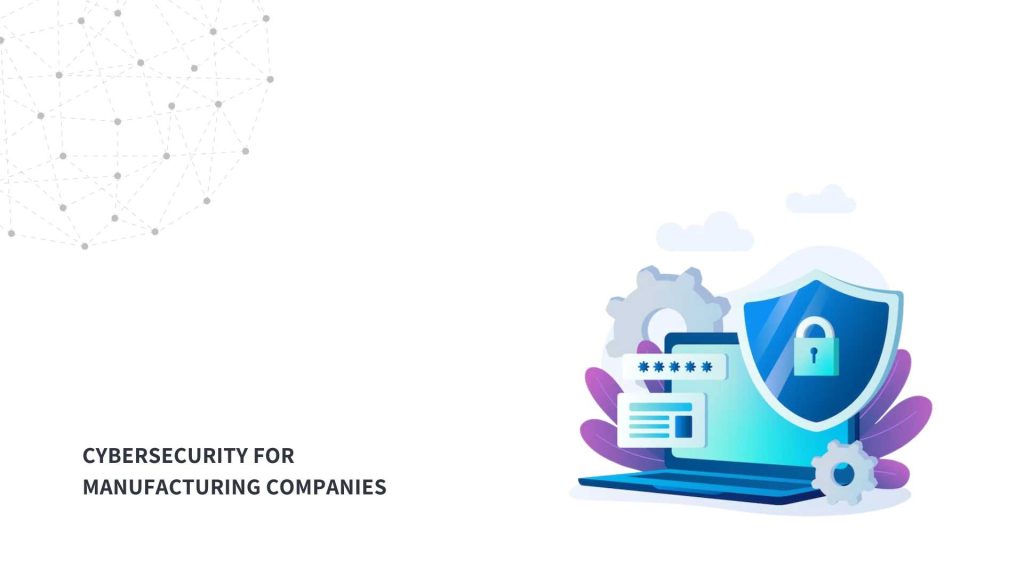The manufacturing industry has experienced a profound shift marked by automation, interconnected devices, and data-driven decision-making. While these technological advancements have undeniably improved efficiency and productivity, they have also exposed manufacturing companies to cybersecurity.
Cybersecurity is no longer an optional consideration for manufacturers; it’s a critical necessity. We will delve into growing threats to manufacturing entrepreneurs, various cybersecurity threats, why manufacturing companies must prioritize cybersecurity, and provide practical tips for building a robust cybersecurity strategy in 2024.
The Growing Threat to Manufacturing Entrepreneurs
Manufacturing companies have become prime targets for cybercriminals due to their operations’ increasing digitization and interconnectivity. Integrating Internet of Things (IoT) devices, cloud computing, and industrial automation has created a complex network that, if exploited, can lead to severe consequences. From intellectual property theft to disrupting production processes, the motives behind cyberattacks on manufacturing are diverse.
Types of Threats
Manufacturing companies face myriad cyber threats, each with unique methods and potential consequences. These threats include:
Ransomware Attacks
Ransomware has become a prevalent threat, with cybercriminals encrypting critical systems and demanding a ransom for their release. For manufacturing companies, this could mean a halt in production until the ransom is paid, resulting in substantial financial losses.
Intellectual Property Theft
Manufacturers invest heavily in research and development to stay competitive. Cyber attackers often target valuable intellectual property, trade secrets, and proprietary manufacturing processes. The theft of such information can have long-lasting implications for a company’scompany’s competitive edge.
Supply Chain Attacks
As manufacturing supply chains become more interconnected, attackers may violet exposures in the supply chain to gain unauthorized access to a company’s systems. It could introduce compromised components or substandard materials into the manufacturing process.
Insider Threats
Insiders, unintentionally or maliciously, can pose a significant risk to manufacturing cybersecurity. Employees with access to critical systems can compromise security or deliberately leak sensitive information.
Why Manufacturing Companies Must Focus on Cybersecurity
Several factors drive the imperative for manufacturing companies to prioritize cybersecurity:
Economic Impact
A successful cyber threat can result in significant financial losses, not only from the immediate impact on production but also due to reputational damage and potential legal consequences. Investing in cybersecurity measures is a proactive strategy to mitigate these risks.
Regulatory Compliance
Manufacturing companies often handle sensitive data, including customer information and intellectual property. Sticking to industry regulations and data security laws is a legal requirement and critical to maintaining trust with customers and partners.
Safeguarding Intellectual Property
The heart of many manufacturing businesses lies in their intellectual property. Protecting designs, processes, and proprietary information is vital to maintaining a competitive edge and sustaining innovation in the industry.
Operational Continuity
Disruptions in manufacturing operations can have cascading effects on supply chains and customer relationships. Robust cybersecurity measures ensure operational continuity, reducing the risk of production halts and downtime.
4 Tips for Building a Robust Cybersecurity Strategy
Manufacturing companies should implement a comprehensive cybersecurity strategy to keep hackers at bay and safeguard their operations. Here are four tips to build a robust defense:
Conduct Regular Cybersecurity Audits
Regular audits help identify vulnerabilities and ensure that cybersecurity measures are current. It includes assessing the security of IoT devices, network infrastructure, and employee access controls.
Employee Training and Awareness
Human errors are a typical element in cybersecurity breaches. Providing regular training to employees on recognizing phishing attempts, maintaining strong passwords, and following cybersecurity best practices is essential in building a resilient defense.
Implement Multi-Layered Security Measures
A multi-layered approach combines firewalls, intrusion detection systems, antivirus software, and encryption to create a comprehensive defense. It ensures that even if one layer is breached, others can prevent unauthorized access.
Incident Response Plan
In a cyber incident, having a well-defined incident response plan is crucial. This plan should outline the steps to be taken immediately after a breach is detected, including communication protocols, containment measures, and recovery strategies.
Future-Proofing Cybersecurity with Advanced Technologies
As cyber threats evolve, manufacturing companies must adopt advanced technologies to future-proof their cybersecurity efforts. AI and machine learning (ML) can improve threat detection capabilities, identifying and mitigating potential risks in real-time.
Conclusion
Implementing a robust Acumatica cloud ERP plays a pivotal role in manufacturing cybersecurity. Acumatica ERP streamlines and optimizes business processes and is critical in improving data security. By consolidating various functions into a unified platform, Acumatica reduces the attack surface and provides centralized control over access and permissions.
Its advanced features, including encryption, user authentication, and real-time monitoring, contribute significantly to safeguarding sensitive manufacturing data. As manufacturing companies evolve in the digital age, embracing Acumatica ERP becomes a proactive measure, fortifying their defenses and ensuring a resilient cybersecurity posture.

Vijay comes with a vast experience in ERP and enterprise solutions space with about 20 years of experience in various packaged application like Acumatica, SAP, Orion, Salesforce.com, SugarCRM and, SalesLogix.

